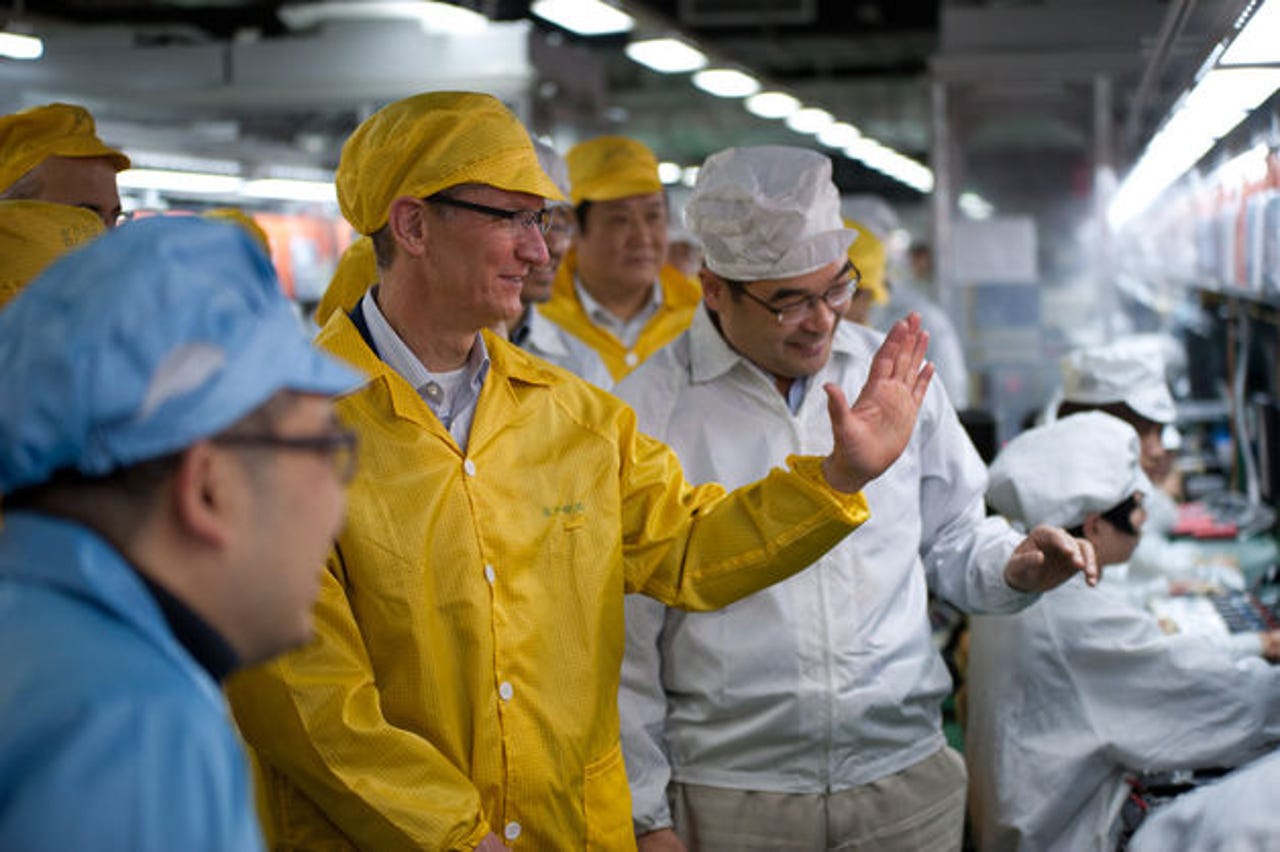Tim Cook visits Foxconn, meets Chinese VP to broker intellectual property agreement?

Apple chief executive Tim Cook was spotted in China earlier this week. It has been confirmed that so far he has visited a Foxconn plant, and has also met with China's Vice Premier.
The details of Cook's visit until this point have been mostly vague, with an Apple spokeswoman claiming that he was there to meet with "government officials". This has led to a fair share of speculation as to what exactly he might be doing there.

Cook is the first Apple chief to visit China, and the company has more than a few troubles in the country to get on top of.
Despite Mike Daisey's harrowing Foxconn report for This American Life being retracted recently, issues on Apple's production line are still very much a focus for the company.
Apple has since revealed that Cook has visited a Foxconn factory in Zhengzhou during the week.
Whilst the more cynical might scoff at such a visit, it is an important gesture. It is hard to say what Foxconn workers might make of a visit from the top, but it certainly displays a sense of understanding.
Cook, and Apple, are very aware that its production process is under scrutiny.
Foxconn is a tricky issue to tackle head on without a clear understanding of the situation on the ground in China. Whilst Daisey's report might have been partially fictitious -- it says a lot about our knowledge that we could easily believe it as fact.
Xinhua, a state run news source, has now confirmed that Cook also met with China's Vice Premier, Li Keqiang.
The details are sparse over what the pair actually discussed, but they seem to have made some sort of agreement over strengthening intellectual property rights, and continued foreign investment in China.
"To be more open to the outside is a condition for China to transform its economic development, expand domestic demands and conduct technological innovation," Li said. Cook apparently agreed that would Apple would "strengthen comprehensive cooperation with the Chinese side and conduct business in a law-abiding and honest manner."
Unfortunately, this report is still rather vague, and any of the finer details that Cook discussed with Li have been kept under wraps for now. However, what can be gleaned from this news it what it could imply.
The emphasis on intellectual property rights could be strongly connected to Apple's other major problem in China, the ongoing trademark issue with locally based Proview. Both companies are still awaiting a verdict on Apple's appeal from a court in Shenzen.
Apple's new iPad was recently cleared for sale by authorities in China, but no date has been set for launch.
Apple is a prominent brand in China, but the issues with Proview might dampen their hopes for a successful iPad launch in the country. Whilst the Shenzen court previously sided with Proview over the ownership of the iPad trademark, there is still a chance that Apple's appeal could be successful.
Beijing based intellectual property lawyer, Stan Abrams, suggests that an end to the dispute could be in the making. "Li also called on multinational companies to help China develop the western part of the country," he comments, "If Tim Cook announces a new facility in Chengdu in the near future, I'd say the fix is in and that little trademark problem might go away very soon."
It is certainly very plausible that Apple's troubles with Proview were on the agenda in some extent.
Regardless, Li's statement can be taken as an indication that China is willing to be more cooperative and supportive of western innovation in the country.
This could amount to more flexibility when it comes to trademark issues with western companies, but it could also mean a stronger policing of smugglers and counterfeits that might damage sales.
Equally, it could simply be about expansion, with more Apple stores and a greater focus on China.
If we take this meeting as tackling expansion, as well as potentially Apple's trademark issues, then Tim Cook's visit is living up to the speculation.
One of Apple's major, outstanding barriers in China is its inability to dominate the smartphone market there. The key cause of which is arguably that Apple is yet to partner with China's biggest carrier, China Mobile.
If Cook were also in talks with China Mobile during his visit, it would likely be in hopes of brokering a future deal with the carrier. Apple had previously promised an iPhone that would be compatible with its network.
If we hear news of such talks, then this will have been a very successful trip for Apple's chief executive.
Image sources: Bowen Liu/Apple via Bloomberg.com, Rao Aimin/Xinhuanet.com.
Related: